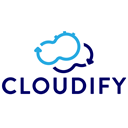Uncovering the Best Cloud Foundry Alternatives for Your Development Needs
Cloud Foundry has long been a popular choice as an open-source Platform as a Service (PaaS) for deploying and managing applications built with Java, Ruby, Python, and Node.js. It provides a robust environment for developers to focus on code rather than infrastructure. However, as development needs evolve and new technologies emerge, many are seeking a Cloud Foundry alternative that might better suit their specific requirements, offer different pricing models, or provide enhanced features. This article will explore the top contenders that offer similar capabilities, and in some cases, even more flexibility.
Top Cloud Foundry Alternatives
Whether you're looking for greater control, specific integrations, or a more cost-effective solution, the landscape of PaaS and container orchestration offers numerous compelling alternatives to Cloud Foundry. Let's dive into some of the leading options available today.

Heroku
Heroku is a widely recognized platform as a service (PaaS) that enables developers to build, run, and operate applications entirely in the cloud. It's a strong Cloud Foundry alternative, particularly for those who prioritize ease of use and rapid deployment. Heroku operates on a freemium model and supports various platforms including Mac, Windows, Linux, and Web. Key features like Custom DNS, DNS management, automated deployment, Command Line support, Python, and VPS make it an attractive option for streamlined cloud development.

OpenShift
OpenShift, Red Hat's free, auto-scaling Platform as a Service (PaaS), stands out as a powerful open-source Cloud Foundry alternative. It manages the application stack in the cloud, offering a robust environment for application deployment. Available on Freemium, paid tiers, and as open source for Linux and Web, OpenShift provides features such as Container monitoring and Web Development, making it ideal for enterprises and developers seeking a managed yet flexible platform.

Kubernetes
Kubernetes is an open-source orchestration system for Docker containers, making it a compelling, free, and open-source Cloud Foundry alternative for those focused on containerized applications. It runs on Web and supports AppArmor, offering powerful features like Container Orchestration, Hypervisor, Operating system, Virtual Machines, and Virtualization. While it requires more setup than a traditional PaaS, its flexibility and control over container deployments are unparalleled.

OpenStack
OpenStack is a global collaboration of developers and cloud computing technologists producing the ubiquitous open-source cloud computing platform for public and private clouds. As a free and open-source platform available on the Web, OpenStack is a comprehensive Cloud Foundry alternative for building your own cloud infrastructure. It provides features like Cloud IDE and Web Development, offering deep customization and control for those who prefer to manage their entire cloud stack.

Google App Engine
Google App Engine is a free* platform for developing and hosting web applications in Google-managed data centers. This freemium, web-based service is an excellent Cloud Foundry alternative for developers already invested in the Google Cloud ecosystem or seeking a highly scalable and managed environment. It offers fast development and deployment, with features like API support, Import from MySQL, PHP IDE, and Support for NodeJS, making it versatile for various web applications.

Microsoft Azure
Microsoft Azure is a comprehensive commercial cloud computing service that offers a vast array of solutions, making it a powerful Cloud Foundry alternative. Available on Web, Android, and Android Tablet, Azure enables you to build, host, and scale applications in Microsoft datacenters. Its robust feature set includes Auto Virtual Host, Cloud Storage, CDN, Virtual Machines, and Web hosting, appealing to enterprises and developers seeking a scalable and integrated cloud environment.

Nanobox
Nanobox is designed to simplify DevOps for developers, making it an intriguing commercial and open-source Cloud Foundry alternative. It takes on infrastructure creation and configuration, allowing developers to focus on coding. Available on Mac, Windows, Linux, and Web, Nanobox offers features like Automated deployment, Cloud coding, DEV/OPS setup, Developer Tools, IDE, and Works Offline, providing a streamlined and efficient development workflow.

HelioHost
HelioHost offers community-powered free hosting for everyone, positioning itself as a cost-effective Cloud Foundry alternative, particularly for personal projects or those with limited budgets. This free, web-based platform supports a wide range of technologies including Python, PHP, Ruby, Django, Java IDE, JSP support, PHP IDE, PHP Pear support, and PhpMyAdmin, alongside general Web hosting, making it a versatile option for various web development needs.

Cloudify
Cloudify is an orchestration-first, model-driven cloud management platform, open source and based on TOSCA. As a free and open-source Cloud Foundry alternative available on Mac, Windows, Linux, and Web, Cloudify is particularly strong for Network Function Virtualization (NFV) and multi-cloud environments. Its features include Cloud-based deployment, Cloud Monitoring, Continuous Deployment, MongoDB, Multi-Tenant capabilities, Network Monitoring, Nginx, Python, and Ruby support, offering extensive control over cloud resources.

Last.Backend
Last.Backend is an Open-source system for automating deployment, scaling, and management of containerized applications. This free and open-source Cloud Foundry alternative, primarily for Linux, focuses on continuous delivery. Its core features include Continuous Deployment, Continuous Integration, and Support for Docker, making it an excellent choice for teams looking for a self-hosted, highly automated solution for their container workloads.
The decision of which Cloud Foundry alternative to choose ultimately depends on your specific project requirements, team expertise, scalability needs, and budget. Whether you prioritize ease of use, deep customization, open-source freedom, or a fully managed service, the diverse landscape of PaaS and container orchestration platforms offers a suitable solution for every developer and organization. Explore these options to find the best fit for your next big project.